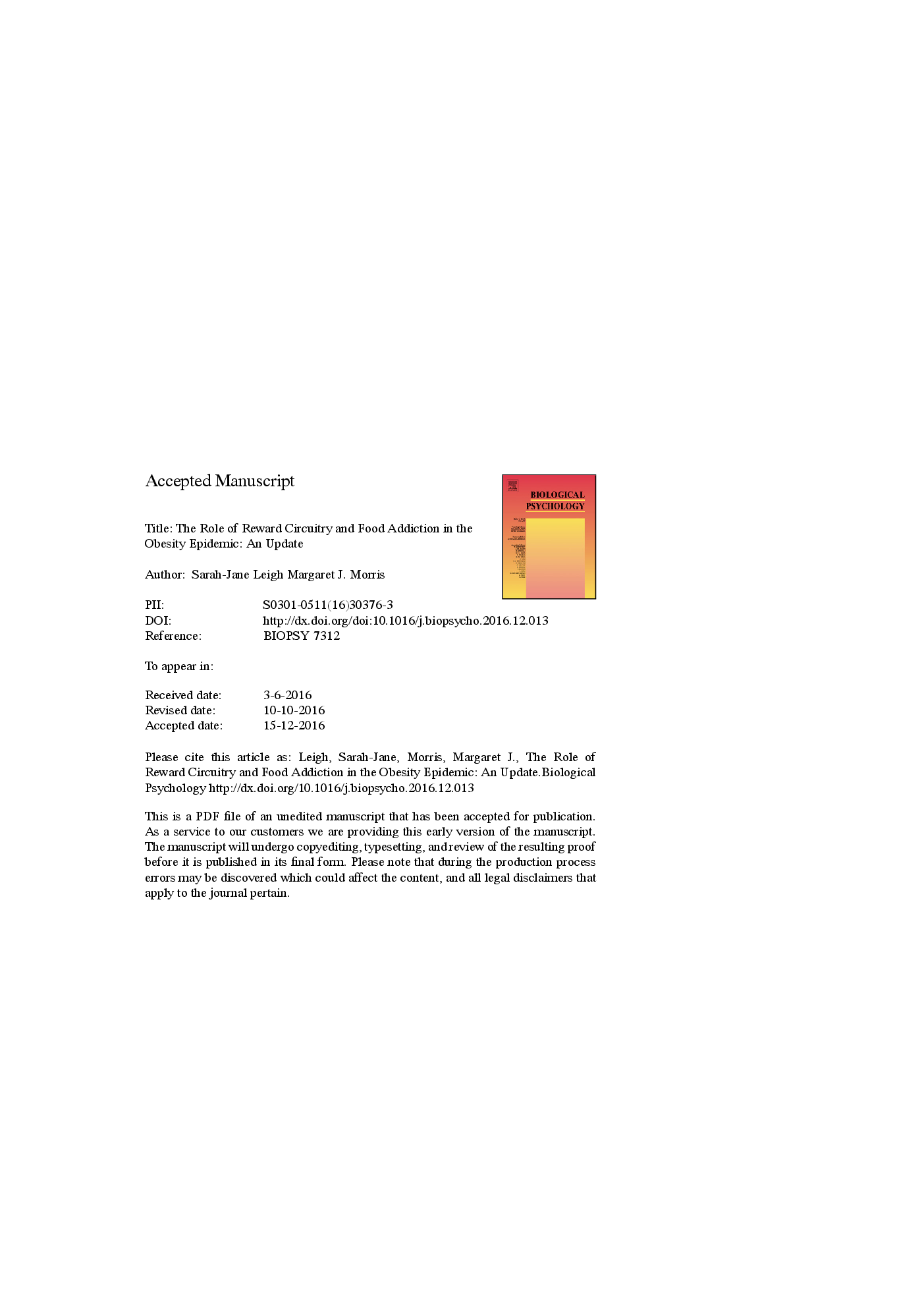ترجمه فارسی عنوان مقاله
نقش مدار پاداش و اعتیاد مواد غذایی در اپیدمی چاقی: به روز رسانی
عنوان انگلیسی
The role of reward circuitry and food addiction in the obesity epidemic: An update
| کد مقاله | سال انتشار | تعداد صفحات مقاله انگلیسی |
|---|---|---|
| 112706 | 2018 | 40 صفحه PDF |
منبع

Publisher : Elsevier - Science Direct (الزویر - ساینس دایرکت)
Journal : Biological Psychology, Volume 131, January 2018, Pages 31-42
ترجمه کلمات کلیدی
وابستگی غذایی، چاقی، خوردن غذا، جایزه، غذای بسیار خوشمزه، مقیاس وابستگی مواد غذایی ییل،
کلمات کلیدی انگلیسی
Food addiction; Obesity; Binge eating; Reward; Highly palatable food; Yale food addiction scale;

